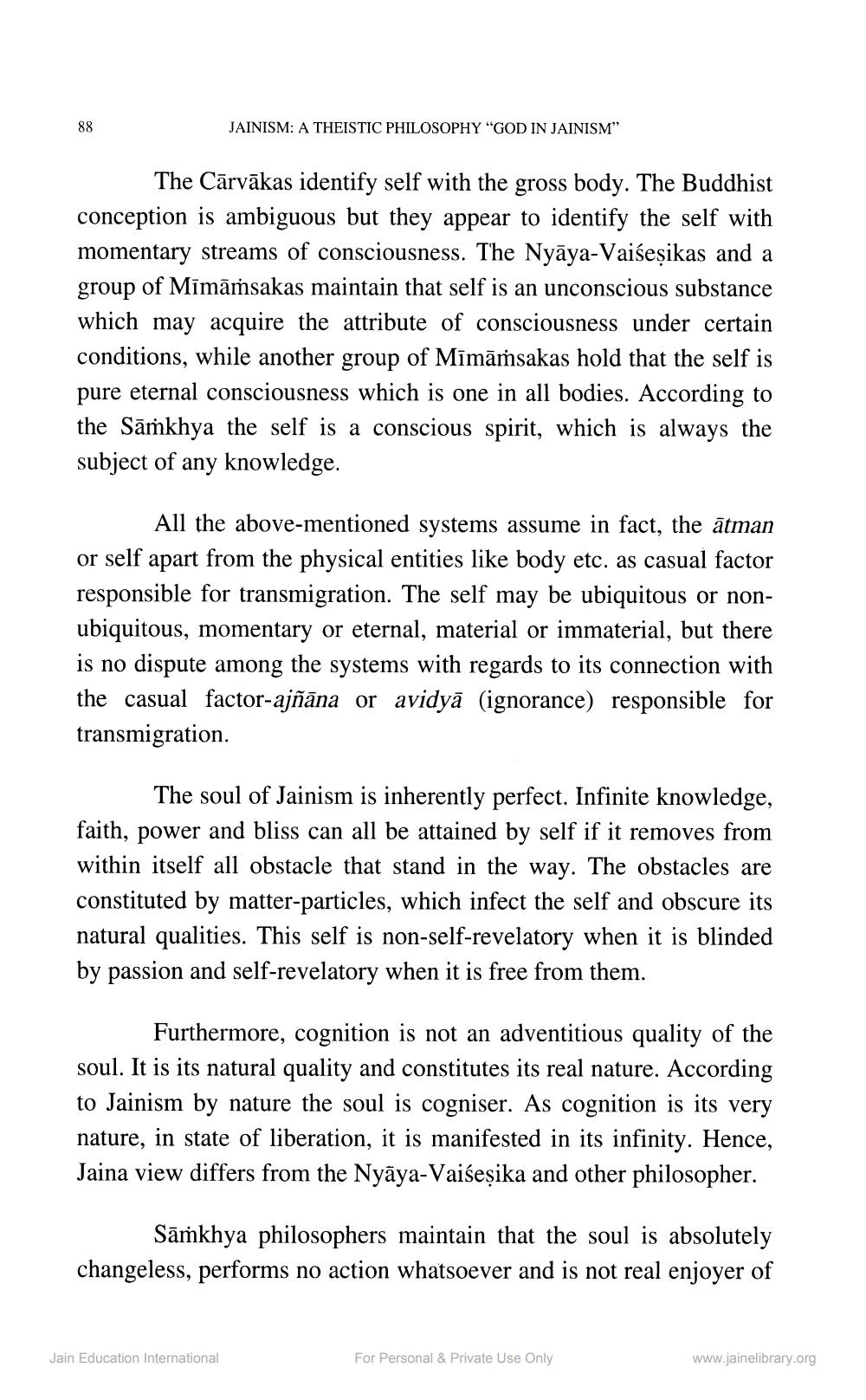________________
JAINISM: A THEISTIC PHILOSOPHY “GOD IN JAINISM"
The Cārvākas identify self with the gross body. The Buddhist conception is ambiguous but they appear to identify the self with momentary streams of consciousness. The Nyāya-Vaišeșikas and a group of Mīmāṁsakas maintain that self is an unconscious substance which may acquire the attribute of consciousness under certain conditions, while another group of Mīmāṁsakas hold that the self is pure eternal consciousness which is one in all bodies. According to the Sāṁkhya the self is a conscious spirit, which is always the subject of any knowledge.
All the above-mentioned systems assume in fact, the ātman or self apart from the physical entities like body etc. as casual factor responsible for transmigration. The self may be ubiquitous or nonubiquitous, momentary or eternal, material or immaterial, but there is no dispute among the systems with regards to its connection with the casual factor-ajñāna or avidyā (ignorance) responsible for transmigration.
The soul of Jainism is inherently perfect. Infinite knowledge, faith, power and bliss can all be attained by self if it removes from within itself all obstacle that stand in the way. The obstacles are constituted by matter-particles, which infect the self and obscure its natural qualities. This self is non-self-revelatory when it is blinded by passion and self-revelatory when it is free from them.
Furthermore, cognition is not an adventitious quality of the soul. It is its natural quality and constitutes its real nature. According to Jainism by nature the soul is cogniser. As cognition is its very nature, in state of liberation, it is manifested in its infinity. Hence, Jaina view differs from the Nyāya-Vaiseșika and other philosopher.
Sāṁkhya philosophers maintain that the soul is absolutely changeless, performs no action whatsoever and is not real enjoyer of
Jain Education International
For Personal & Private Use Only
www.jainelibrary.org




